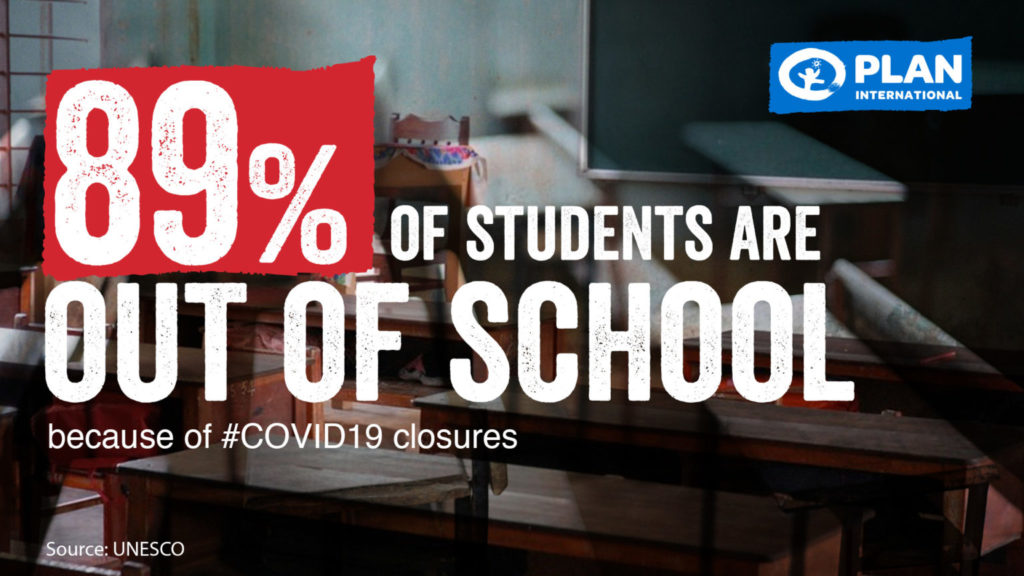This International Day of Education is an opportunity to highlight the risks girls face when they are out of education and call for their voices and needs to be centred as we collectively build back better throughout 2021 and beyond.
Covid-19 has wreaked havoc on education and the lives of children in Ireland and across the world.
When the lockdown lifts once again in Ireland, as it will, children and adolescents across the country will return to classrooms, where they belong. With careful consideration of the implications school closures have had on the most vulnerable children, targeted interventions should mitigate some of the harshest consequences on their lives to date.
Imagine, however, that the pandemic had robbed you of your entire future? That is the grim reality facing millions of children around the world right now unless swift and decisive action is taken by world leaders to ensure their return to education is prioritised.
School closures across the world resulted in over 1.5 billion children being out of school at the height of the pandemic in 2020, over 750 million of whom were girls. Upwards of 111 million of these girls were living in the least developed countries, where their access to education is often already curtailed due to traditional gender norms, gender–based violence and harmful practices such as child marriage.
According to UNESCO, 130 million girls of school-going age were not in education prior to the outbreak of coronavirus and this profoundly unequal disparity between boys and girls has only been exacerbated as a result of the pandemic.

In some parts of the world, when parents are forced to make the decision as to which of their children receives an education, it is boys who are prioritised. Traditional gender roles mean that girls are often seen as destined for caring responsibilities and child marriage, rendering their education unimportant.
Even after girls overcome barriers to access education, when they have to drop out during crises they are far less likely than their male counterparts to ever return. Throughout the pandemic, girls have also been less likely than boys to have access to broadband and participate in remote lessons. When girls are out of education, they face child marriage, adolescent pregnancy, female genital mutilation, sexual exploitation, and trafficking. Throughout the pandemic, girls have also ended up shouldering burdens of domestic responsibilities and supporting the income-generating activities of their families as livelihoods have been ripped from people due to lockdowns.
Many girls who spoke to Plan International in the Lake Chad region, already living through one of the worst humanitarian emergencies in the world prior to the outbreak of Covid-19, spoke about peers in their communities who had been married during lockdown. Turned into child brides, these girls have now been robbed of their education and their futures. The Guardian recently reported on the sexual exploitation of girls in Kenya who no longer had access to period products in schools and were forced into sexual acts in exchange for money and pads. Thousands are now pregnant with no prospect of returning to school.
The World Bank has sounded the alarm about how school closures during the pandemic may not only impact upon students’ learning in the short term, but will likely have long-term economic consequences. It estimates the current generation of students risk losing out on $10 trillion in earnings as a result of drop-outs.
Despite schools in many countries having reopened to some degree since the initial widespread closures, targeted, gender-transformative measures are needed to ensure that girls return to education. Governments, community leaders and education personnel must view this time as an opportunity to build back better education systems which include gender-responsive measures to transform education, prioritise resilience and address the key barriers to girls’ education.
According to the Malala fund, up to 20 million girls right now face never returning to education when public health restrictions lift. Their voices must be central in the global response to COVID-19 – if leaders do not take the needs of girls seriously, we risk reversing decades of progress towards gender equality and ensuring education for all girls everywhere is a reality.